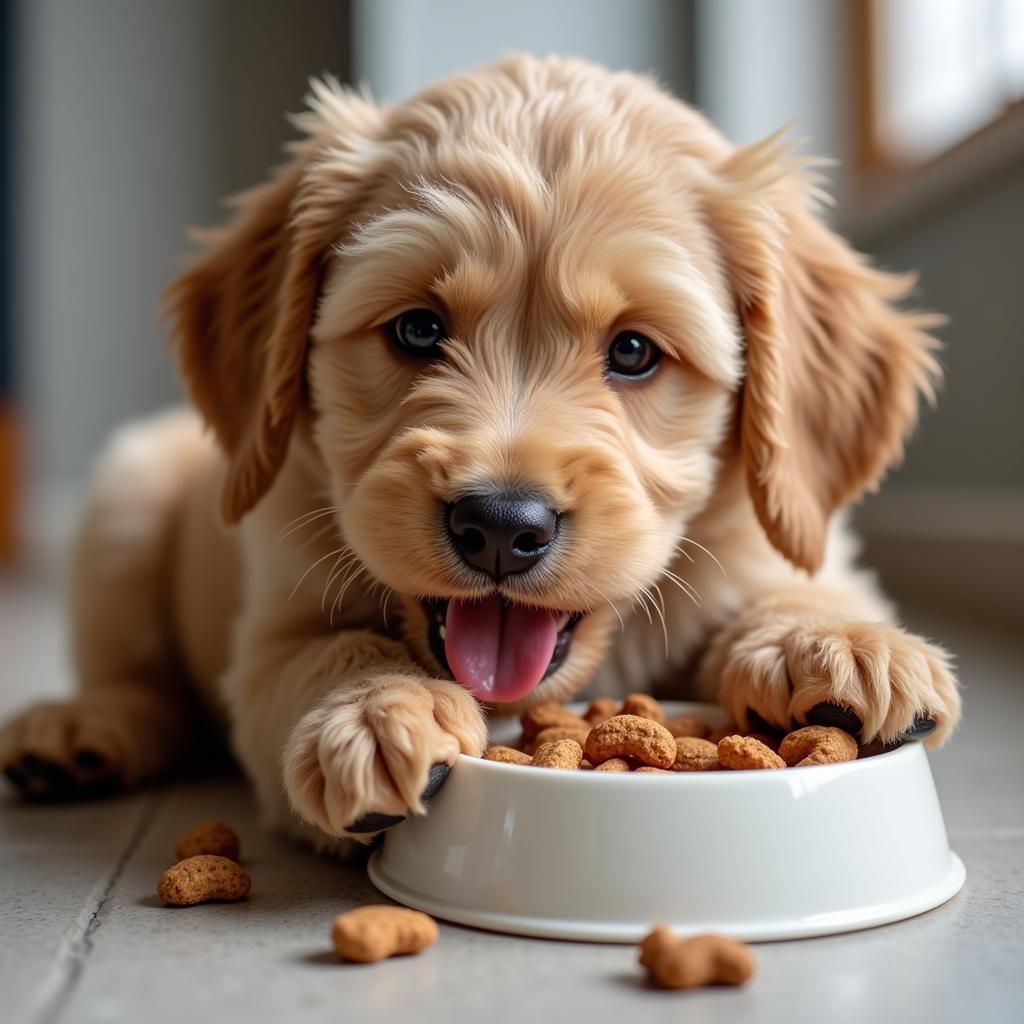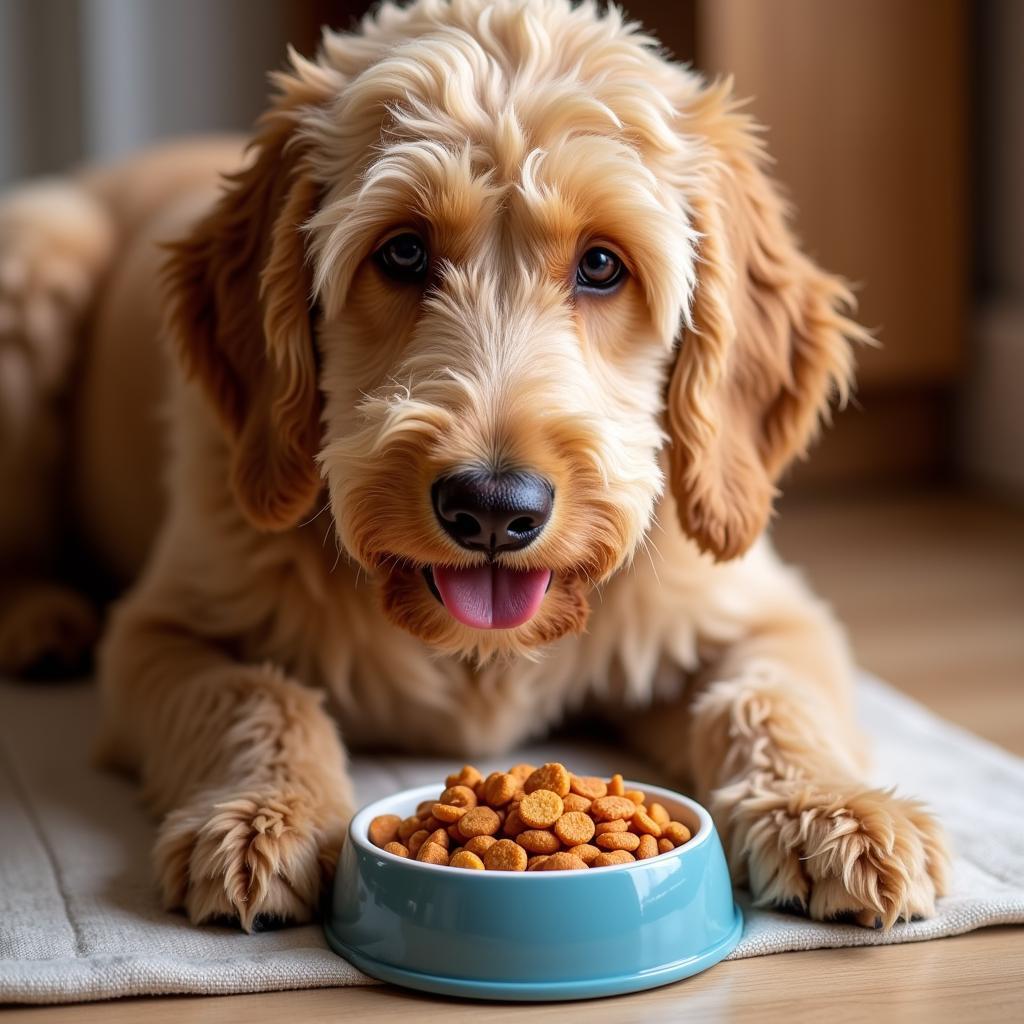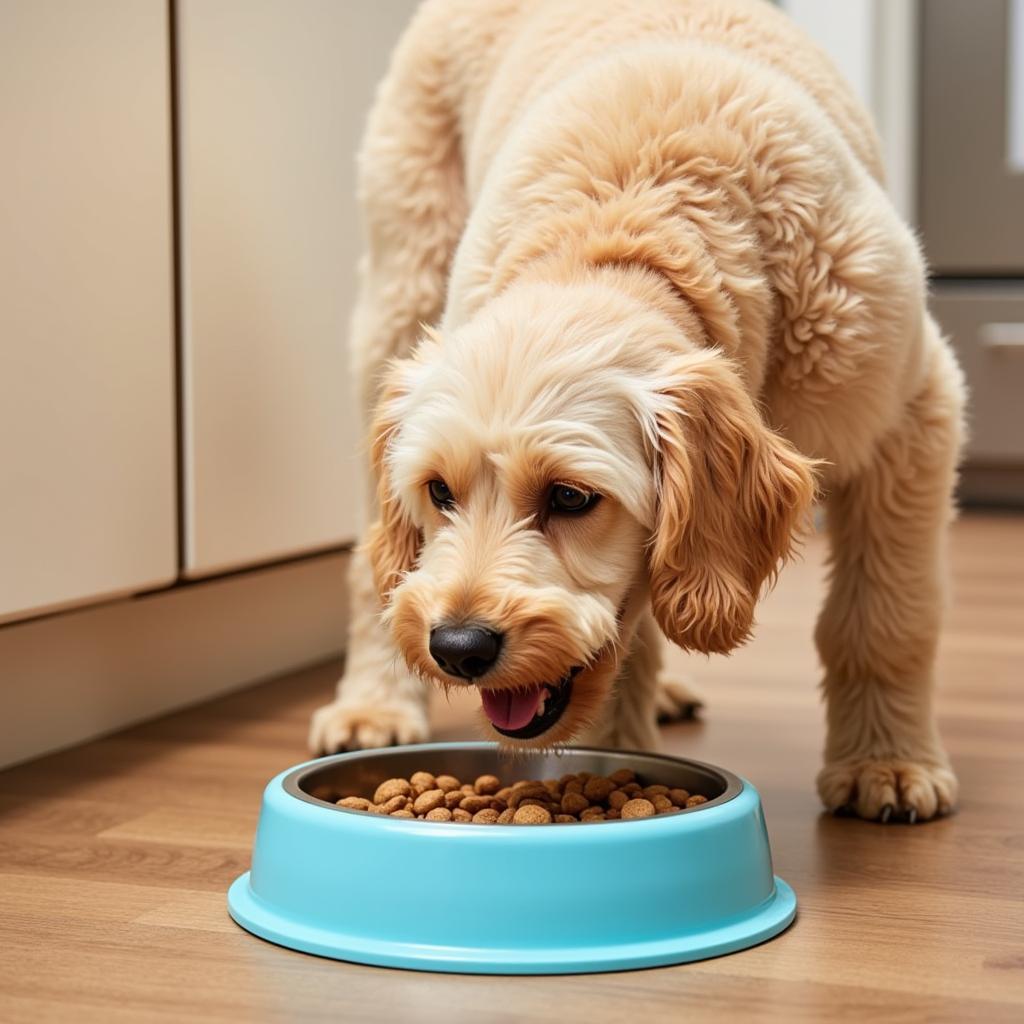Finding the best food for your Labradoodle can feel overwhelming with so many options available. But choosing the right nutrition is crucial for their health, energy levels, and overall well-being. This guide will delve into everything you need to know about selecting the perfect diet for your furry friend, from puppyhood to their senior years.
Choosing the best puppy food for labradoodles sets the foundation for a healthy life. We’ll discuss essential nutrients, portion control, and how to transition your Labradoodle to adult food. We’ll also explore specific dietary needs, like allergies or sensitivities, and how to address them with the right food choices. Finally, we’ll cover the importance of reading food labels and understanding ingredient lists.
What Makes the Best Food for Labradoodles?
Just like humans, Labradoodles require a balanced diet rich in proteins, fats, carbohydrates, vitamins, and minerals. High-quality protein sources like chicken, lamb, fish, or beef provide the building blocks for strong muscles and a healthy coat. Healthy fats, such as those from fish oil or flaxseed, contribute to healthy skin, a shiny coat, and cognitive function.
Carbohydrates provide energy for your active Labradoodle. Look for complex carbohydrates like brown rice, sweet potatoes, or oats. Avoid fillers like corn or wheat, which can be difficult to digest. Essential vitamins and minerals support various bodily functions, from immune health to bone development.
Choosing the Right Food for Your Labradoodle’s Life Stage
A Labradoodle’s nutritional needs change throughout their life. Puppies require higher calorie and protein-rich food to support rapid growth. Adult Labradoodles need a balanced diet to maintain their weight and energy levels. Senior Labradoodles may benefit from lower calorie food with added joint support supplements.
Puppy Food
For puppies, opt for best puppy food for labradoodle specifically formulated for large breed puppies. This helps prevent rapid growth that can lead to joint problems later in life.
Adult Food
Once your Labradoodle reaches adulthood, transition them to a high-quality adult dog food. Look for food that meets the Association of American Feed Control Officials (AAFCO) standards for complete and balanced nutrition.
Senior Food
As your Labradoodle ages, their metabolism slows down, and they become less active. Senior dog foods are often lower in calories and higher in fiber to support healthy digestion. They may also contain added glucosamine and chondroitin for joint health.
 Labradoodle puppy enjoying its meal
Labradoodle puppy enjoying its meal
Common Dietary Concerns for Labradoodles
Labradoodles, like many breeds, can be prone to certain dietary sensitivities and allergies. Common allergens include chicken, beef, wheat, and corn. If you suspect your Labradoodle has a food allergy, consult your veterinarian. They can recommend an elimination diet or allergy testing to identify the culprit.
Symptoms of food allergies can include itchy skin, digestive upset, and ear infections. If your Labradoodle experiences these symptoms, switching to a hypoallergenic or limited ingredient diet might be necessary. These diets contain novel protein sources, like duck or venison, and easily digestible carbohydrates, reducing the risk of allergic reactions.
 Adult Labradoodle enjoying salmon-based food
Adult Labradoodle enjoying salmon-based food
What Should I Look for on a Dog Food Label?
Understanding dog food labels is crucial for choosing the right food for your Labradoodle. The label should clearly state the guaranteed analysis, listing the minimum percentages of crude protein, fat, fiber, and moisture. The ingredient list should also be clearly displayed, with ingredients listed in descending order by weight.
Look for food that lists a named meat source, like chicken or lamb, as the first ingredient. Avoid foods with vague ingredients like “meat by-products” or “animal fat.” These ingredients can be lower quality and less digestible. Check out resources like the best food for mini poodle for comparison.
How Much Should I Feed My Labradoodle?
The amount of food your Labradoodle needs depends on their age, weight, activity level, and the specific food you choose. Follow the feeding guidelines on the food packaging as a starting point, but adjust the amount as needed to maintain a healthy weight.
Overfeeding can lead to obesity, which can put a strain on your Labradoodle’s joints and increase their risk of developing health problems. Underfeeding can lead to malnutrition and a weakened immune system. Regularly monitor your Labradoodle’s weight and adjust their food intake accordingly. You can also explore alternative food options, such as quest freeze dried cat food, for insights into different feeding approaches.
 Senior Labradoodle eating from a slow feeder bowl
Senior Labradoodle eating from a slow feeder bowl
Conclusion
Choosing the Best Food For Labradoodles is a vital aspect of responsible pet ownership. By understanding their specific nutritional needs throughout different life stages and being mindful of potential allergies, you can ensure your furry friend thrives. Always consult with your veterinarian if you have any concerns about your Labradoodle’s diet or health.
FAQ
- What is the best food for a Labradoodle puppy? Look for large breed puppy food rich in protein and calcium.
- Can Labradoodles eat grain-free food? Yes, but consult your vet as some grain-free diets have been linked to heart issues.
- How often should I feed my adult Labradoodle? Typically, twice a day.
- What are signs of a food allergy in Labradoodles? Itchy skin, digestive issues, and ear infections.
- How do I transition my Labradoodle to a new food? Gradually mix the new food with the old food over several days.
- Are there any foods Labradoodles should avoid? Chocolate, grapes, raisins, onions, and garlic are toxic to dogs.
- How can I tell if my Labradoodle is overweight? You should be able to feel their ribs easily but not see them prominently.
Need more support? Contact us at Phone Number: 02437655121, Email: minacones@gmail.com Or visit our address: 3PGH+8R9, ĐT70A, thôn Trung, Bắc Từ Liêm, Hà Nội, Việt Nam. We have a 24/7 customer support team.